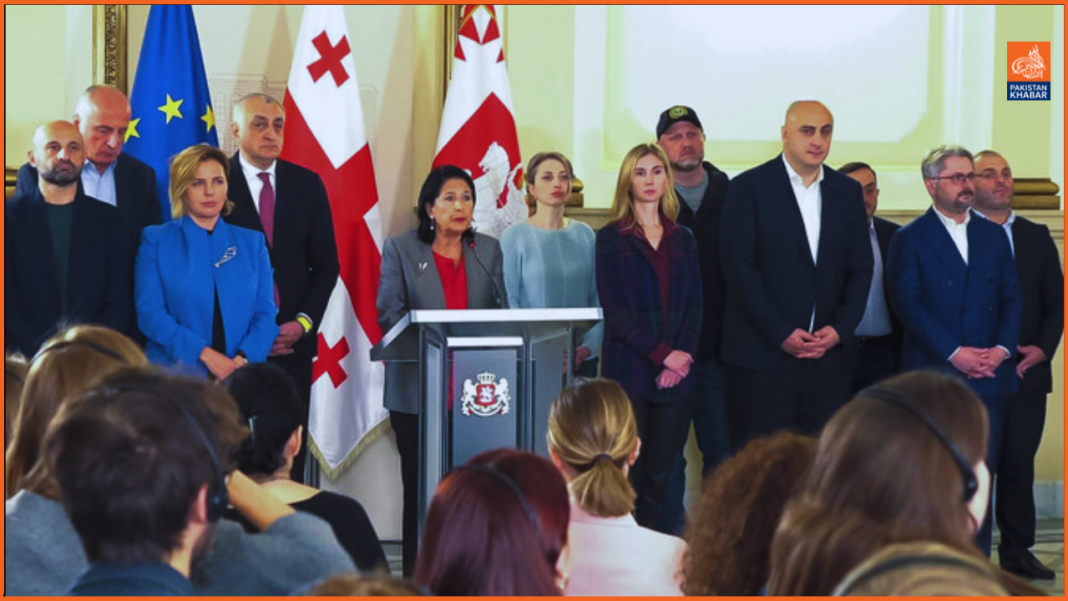Georgia’s Prime Minister Irakli Kobakhidze has celebrated what he calls a “landslide” election victory while dismissing claims of vote-rigging and violence. In an exclusive BBC interview, he stated that while irregularities can occur in any country, they do not undermine the legitimacy of the elections. Preliminary results from Georgia’s election commission show the ruling Georgian Dream party won an outright majority with 54%, despite opposition exit polls suggesting they performed better.
Meanwhile, President Salome Zourabichvili condemned the elections as a “total falsification” and has called for a mass rally outside parliament. Election observers have reported concerns about an “uneven playing field” during the election, prompting calls from the US and the EU for an independent investigation into the electoral process.
The prime minister contended that only minor incidents were reported at polling stations, asserting that the overall election environment was peaceful. However, critics point to increasing authoritarianism within the Georgian Dream party, particularly following the passage of laws that mirror Russian policies targeting media and NGOs. This shift has resulted in the EU freezing Georgia’s bid to join the union, despite a strong desire among Georgians for EU membership.
Amid allegations of vote manipulation, opposition parties are refusing to recognize the results and have accused the ruling party of stealing the election. Some members of the opposition have announced a boycott of parliament. Additionally, accusations of Russian interference have surfaced, with claims of a coordinated operation to influence the vote.
Despite these controversies, Kobakhidze maintains that the elections were conducted fairly, emphasizing the use of a new electronic vote-counting system designed to prevent manipulation. However, reports from various monitoring groups highlight significant violations, including voter intimidation and ballot stuffing.
The situation remains tense as the opposition prepares for protests, and the ruling party faces increased scrutiny both domestically and internationally




